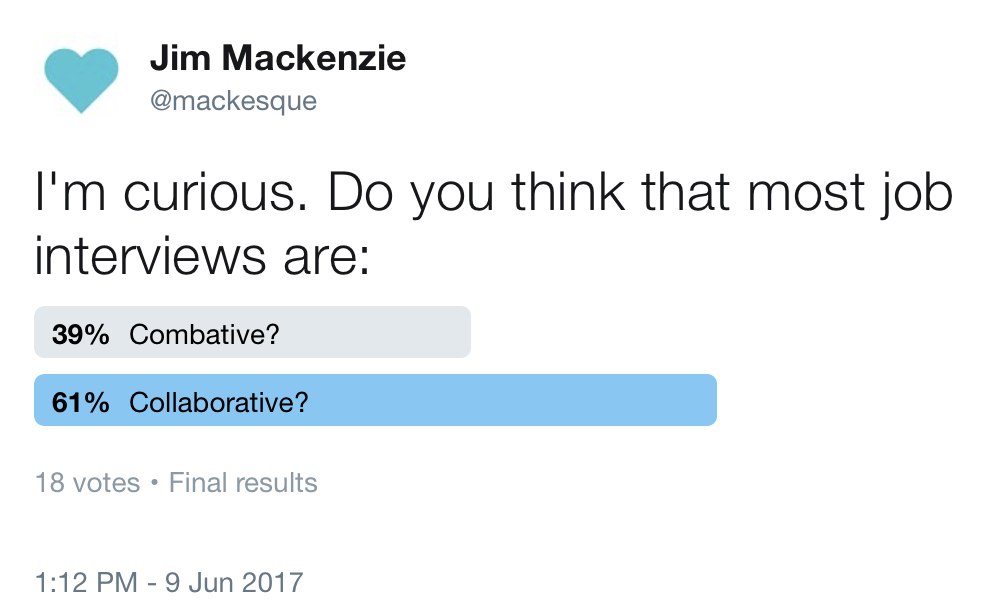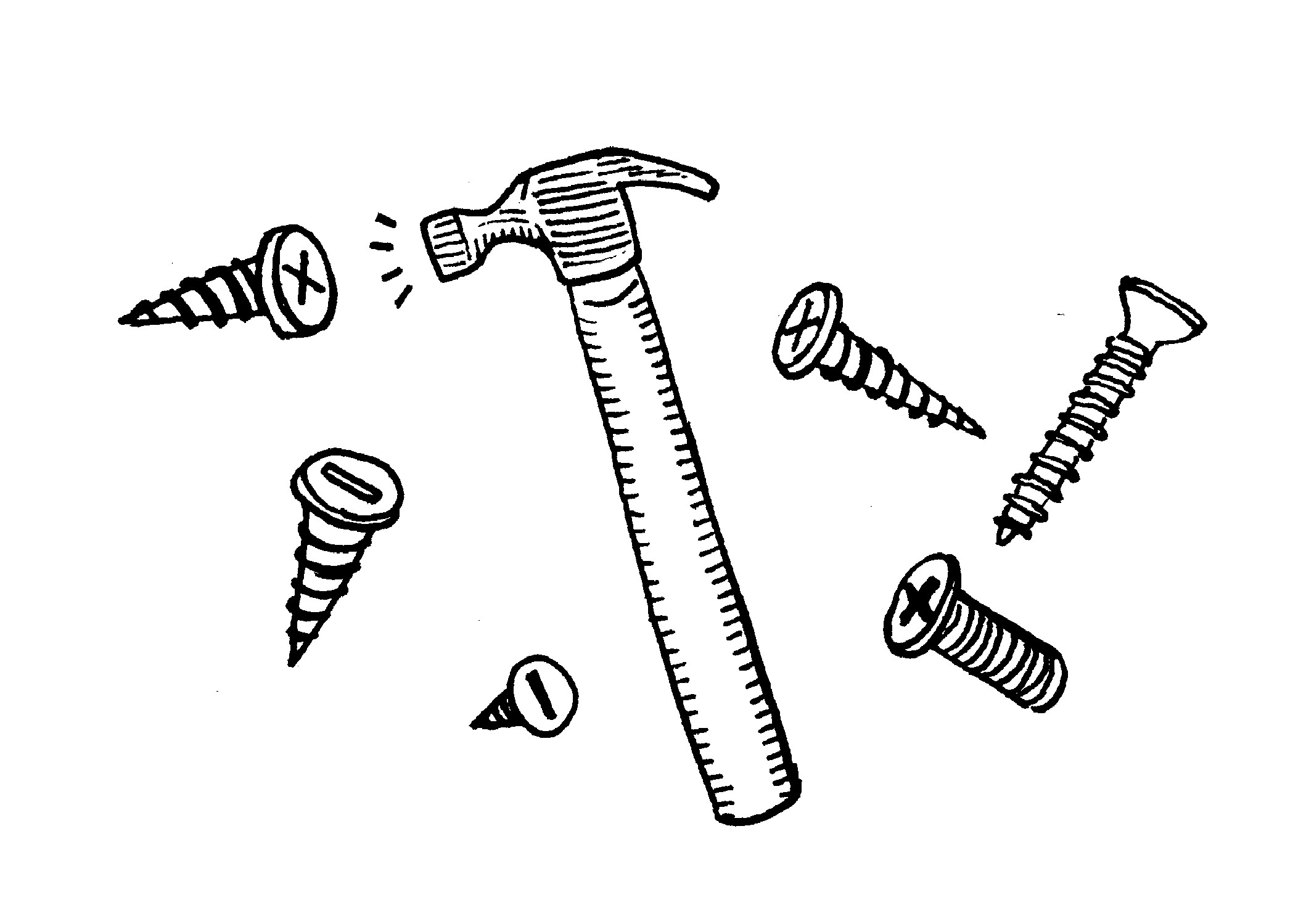There’s a sentiment in hiring I’ve run into recently. The idea goes that you want to see how someone works “under pressure” before you hire them. What does that look like? You build in a step with a task, add a tight deadline, and wait to see how the applicants cope.
In the worst cases, there is an expectation that giving any help to the applicant would skew the results. And besides, that quick turnaround helps keep the hiring timeline nice and short! That’s always a win. Or is it?
Let’s think about what this looks like to your new colleague. On their first few interactions with you, they get an arbitrary dreadline. The first taste of working with you is rancid and sour and artificial. Stress Max. All the angst, none of the calories. You’ve told them that applying for this job is the most important thing in their life. To drop everything and show you how they cope when times are tough. That asking for help is a weakness.
You’ve also rigged the result. You are far more likely to end up with someone who looks like the people who already passed through the fire. That pressure you are applying presses harder on people who are shorter on time. You might rationalize it to yourself with a “it’ll only take an hour, two tops”. And it is easy to feel that way when it’s your only responsibility. When you are finishing up your 3rd job, or working and caring for a relative, finding precious minutes to do this extra task well can feel impossible. You either accept that you’ll do second-rate work, or you cut into your sleep, or you let down the people relying on you for a chance at a better life. Suddenly, that pressure is costing you a chance to see the potential of your candidates. And for what? A weak simulacrum of the worst possible experience of working at your company.
That doesn’t mean that you shouldn’t look at the work. That doesn’t mean that you can’t have constraints. Looking at the work is one of the best tools we have to decide on who to work with. You can and should choose the scope of the work with care. Show the applicants what working with you looks like for real. Warts and all. If your business values thoughtful, careful work, give the applicant the time and support to do their best work. Treat them the way you treat the rest of your colleagues. Build up the trust battery, from the very first interaction. Make it clear how to get help, and what good work looks like.
Adding pressure to a system without a safety valve is a recipe for explosions.
Jason Fried and DHH talk more about dreadlines and the trust battery in their newest book: It Doesn’t Have To Be Crazy At Work. Check out the chapters “Hire the work, not the résumé”, “The trust battery” and “Dreadlines”. You can find out more at basecamp.com/books/calm

